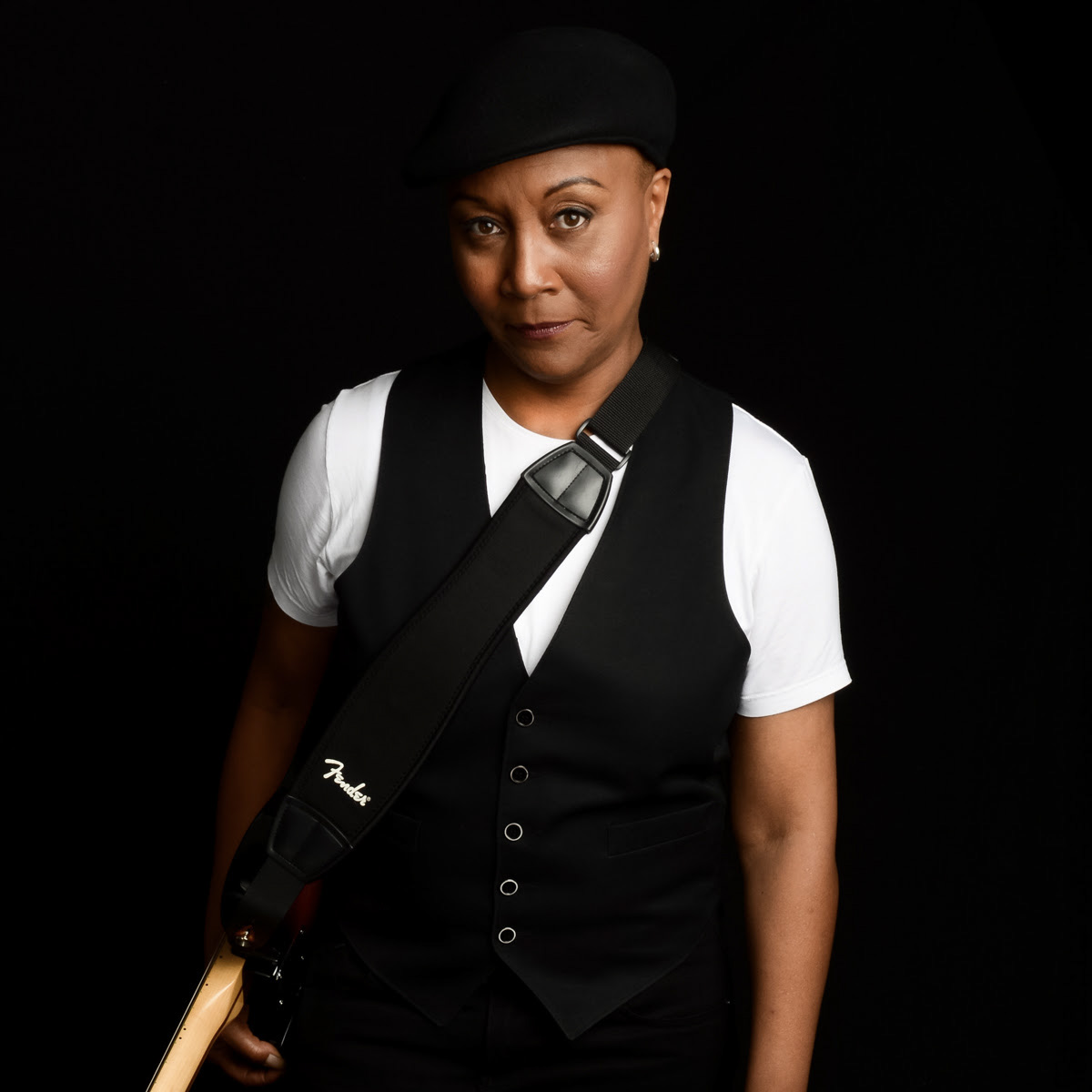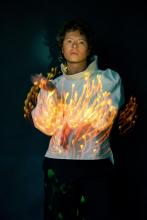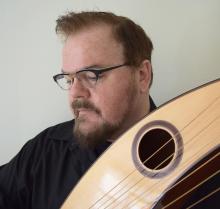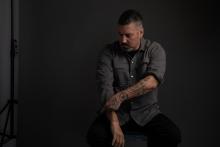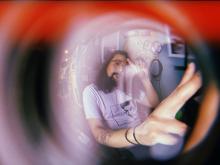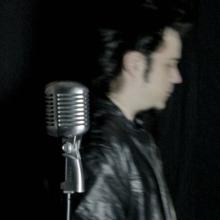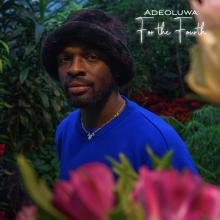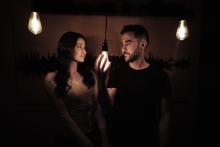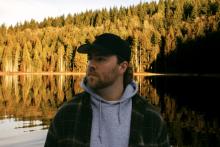Like it did for so many others, the pandemic allowed for a time of deep reflection, and Toronto-based veteran pop-fusion artist Leslie Taylor combines memories of a brutal past with the sweetness of being 16 and awakening to one’s sexuality in her new single “Look But Don’t Touch”.
Listen on Spotify here: open.spotify.com/track/36srMcFmWGOaHjjIPivuvr?si=85c51e391a774d63&nd=1
“Look But Don’t Touch” combines easy, island-infused beats, deft guitar, and Taylor’s crystalline, soulful vocals to tell the story of someone walking into her first gay bar in Toronto called The Studio that used to be at Carlton And Church and meeting someone that would change my life for the better. At first, the narrator is nervous, but then she settles into the uncomplicated fun she wills herself to have:
Oh honey
Doncha be so coy
Let’s have a giggle and a drink
It looks like
You might overthink
The lackadaisical flirtation of the song has more earnestness to it, however, when you know the backstory. “This first release of ‘Look But Don’t Touch’ is my voice as a 16-year-old teenager without a home discovering and awakening to my different sexuality and having no idea what was going to happen,” Taylor divulges. “Well, the worst had already happened, but at least I wasn’t having water boiled to be thrown on me anymore by a violent parent.”
As a young teen, Taylor was living at Eglinton and Kingston Road in the heart of the ‘hood in a sole support home with a parent who didn’t know how to parent. Taylor was a child born at the end of a horrific marriage and is a surviving child because of her brother Pierre’s death in 1959 in Barbados. “The trauma of his death never left me. I was suddenly taken from my home in Toronto at 5 years old in the year of our complicated centennial and flung into a Caribbean home with Grandparents I didn’t know - all hell broke loose, surprise, surprise - and without my mother. I met my brother Pierrre when I was 5 years old at his graveside one Easter Morning in that Moravian Church Graveyard. My Grandfather, the Lay Minister of Sharon Moravian Church, insisted on having Easter Sunday Service at the grave of the dearly departed namely my brother Pierre.I was terrified of these people. Imagine meeting your sibling at his grave. My Brother went on vacation in 1958 to visit his Grandparents and was dead and buried a week before his second birthday in 1959 without either of his parents in attendance. No investigation, no empathy, just silence. They literally got away with burying their Grandchild, and never having to explain what happened.”
Taylor had been raised in residential services from the age of six months until 3 years old, and came home only on the weekends, spending Christmases and birthdays in residential care. “My baby book of memories is rife with the neglect, written by a parent that could not cope, would not get help, and was a trained RN, whose Machiavellian style of parenting created a non-stop environment of trauma. When she did finally go to live with her mother, it was a deeply unhappy home. “That was my life living on the margins within the margins, and my Sears special jumbo guitar with seagulls on the flange was my only friend. Yes, I had acquaintances but as soon as they discovered who I was, I became a pariah, to be expected – it was 1977, after all.”
Taylor came out as a Lesbian in her teens, and she eventually found her way to the Lesbian Organization of Toronto (LOOT), which was a cultural, social, and political hub of mostly white, middle-class women. Taylor is Black, the daughter of a Barbadian mother and Jamaican father, and even though this was a place where she was finally supposed to experience belonging, she didn’t.
“It was women, who were all white, spewing Marxist-Leninist doctrine as they argued with the Trotskyites, and told everyone how to think, act, they believed all men were bad. I don’t believe that, and as a Black woman my feminism includes my men,” Taylor said. “We work together to eliminate misogyny. I have no intention of migrating to an island with only angry, scary women, where my status as a Black woman would have been relegated to that of the ‘help.’”
But there were little glimmers of hope and belonging. She met a woman named Pat, who was Guyanese and lived with her partner Charlene. “For me, these women embodied the Lesbians of the time. Not only did they live on site but they were an interracial couple that lived their principles, they weren’t doing this for a college credit, they were not problematic volunteers, with problematic substance abuse issues ( the drinking women scared me I didn’t drink, remember I’m 16) they were human beings that I could envision as mentors. And then there were more Black women who came into her life at just the right time. Including, through her music, Joan Armatrading, whose album Show Some Emotion was hot off the presses. Joan spoke in whispers of the love ‘that cannot speak its name,’” Taylor recalls. “I’d finally found someone I could relate to musically, and Ms. Armatrading was from the Caribbean like me.”
And so, Taylor’s “Look But Don’t Touch” has all of this woven throughout, and when she begins the song with “I walked into an old space,” it hits differently now that you know.
What else you should know is that Taylor isn’t new to any of this. In the mid-‘90s, she released a self-titled, all-original, nine-track album as an independent artist and led a five-piece band under her own name. Despite the lack of infrastructure at the time, ‘First Born’ charted on college radio in Toronto. Parenthood became her priority, because it was crucial to her that her daughters be raised in a financially stable home. So, despite her love of music, Leslie deferred her dreams (with pleasure) to co-parent her now-adult daughters who are out in the community thriving. In five years, Leslie returned to university, completed undergraduate and graduate degrees in Social Work, and was invited onto the faculty of Community and Social Services at Humber College as a partial-load Professor, where her skills of engagement with large classrooms were honed. Leslie studied jazz guitar with a well-known instructor in Toronto and continued to write her music.
Remember through access to healing, it’s not where you start it’s where you end, and that 16-year-old that did not become street involved and went to school and studied is so deeply grateful for the family of Jamaican musicians and artists that took her into their lovely homes, nurtured her, insisted that she go to school and study, and kept me safe. It’s cool to heal, and as I make peace with the past, through continued access to the available healing resources, that I’ve always used. Here’s what I’ve learned: you can have compassion for your bloodline from a distance, I have a wonderful chosen family, you do not have to be their scapegoat and or their punching bag. Wish them well on their journey, it’s not your responsibility to heal them, and it’s fine to not have contact if the only thing that has healed and grown is you, and there’s nothing to miss except trauma. This is the best part of my life, FREEDOM!!,” she exalts.
The past is over and done, there ain’t a damn thing you can change, the best you can do is buckle up honey and hold on as tight as you can, knowing ‘love’s for real.



